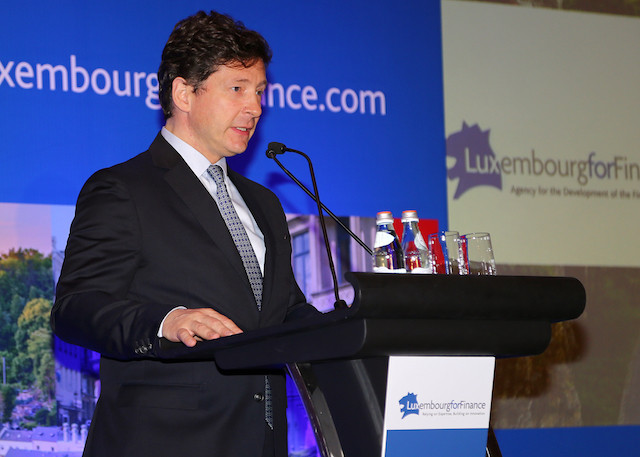In an interview with public radio 100,7 on Friday 28 April, Mackel confirmed only the names of companies who have made their decision to come to Luxembourg public:
“Some 5 or 6 bigger companies have already made their decision public, and others have not yet done so. Currently there are a dozen companies--banks, insurance companies, fund managers--who, as far as we know, have decided to come to Luxembourg.”
Among those already confirmed are:
“AIG, the biggest US insurance company, FM Global, another US insurance company. In the funds industry, MMG, a larger management funds group, has said it would relocate. Articles have been published which say that Blackstone and Carlyle, the biggest equity funds company, also decided to come.”
Luxembourg for Finance
The CEO of the industry promotion body stated that:
“LFF is partly financed by the state, partly by PROFIL [Luxembourg Federation of Financial Sector Professionals, whose members include the Aca, ABBL, Alfi and Chamber of Commerce, among others]. It is not directly financed by banks or insurances, but by their associations. We are not a lobbying organisation which is active on the political level, but is focused on business development and communication. Our role is not to comment on Luxembourg politics, but to sell the financial centre internationally.”
Selection criteria: talent
Mackel stated that they tailor their arguments to the clients. Some companies have 20, or even 40, criteria on where they will relocate to:
“Our arguments depend on the sector, but the principal argument in favour of Luxembourg is its stability. Stability is a huge selling point in a world where there are considerable political and economic uncertainties.”
Lloyd’s of London recently decided against the grand duchy, who was only up against the Belgian capital.
“In the end, for Lloyd’s the final selection was between Luxembourg and Brussels. We don’t know what the weighting of these criteria was. For MMG, AIG, etc., Luxembourg performed better on their criteria. These are individual decisions.”
The counterarguments that Mackel hears are usually related to the size of the country, not to office space or housing:
“We have had questions, especially from journalists, on the availability of office space, but not from banks, because they would have no problems in finding offices. One perceived problem is that Luxembourg is seen as a small country, and banks wonder if they find the necessary talents. Once you point out that Luxembourg is not an island, they suddenly see it the same way.”
Jobs
When asked how many jobs these companies would create, Mackel explained that:
“I must admit we have not done any studies and it is not directly relevant to us. It is not relevant because we first concentrate on which companies could be interested.”
